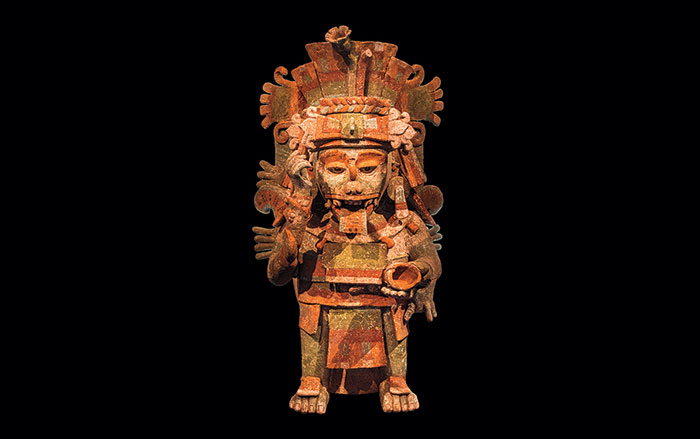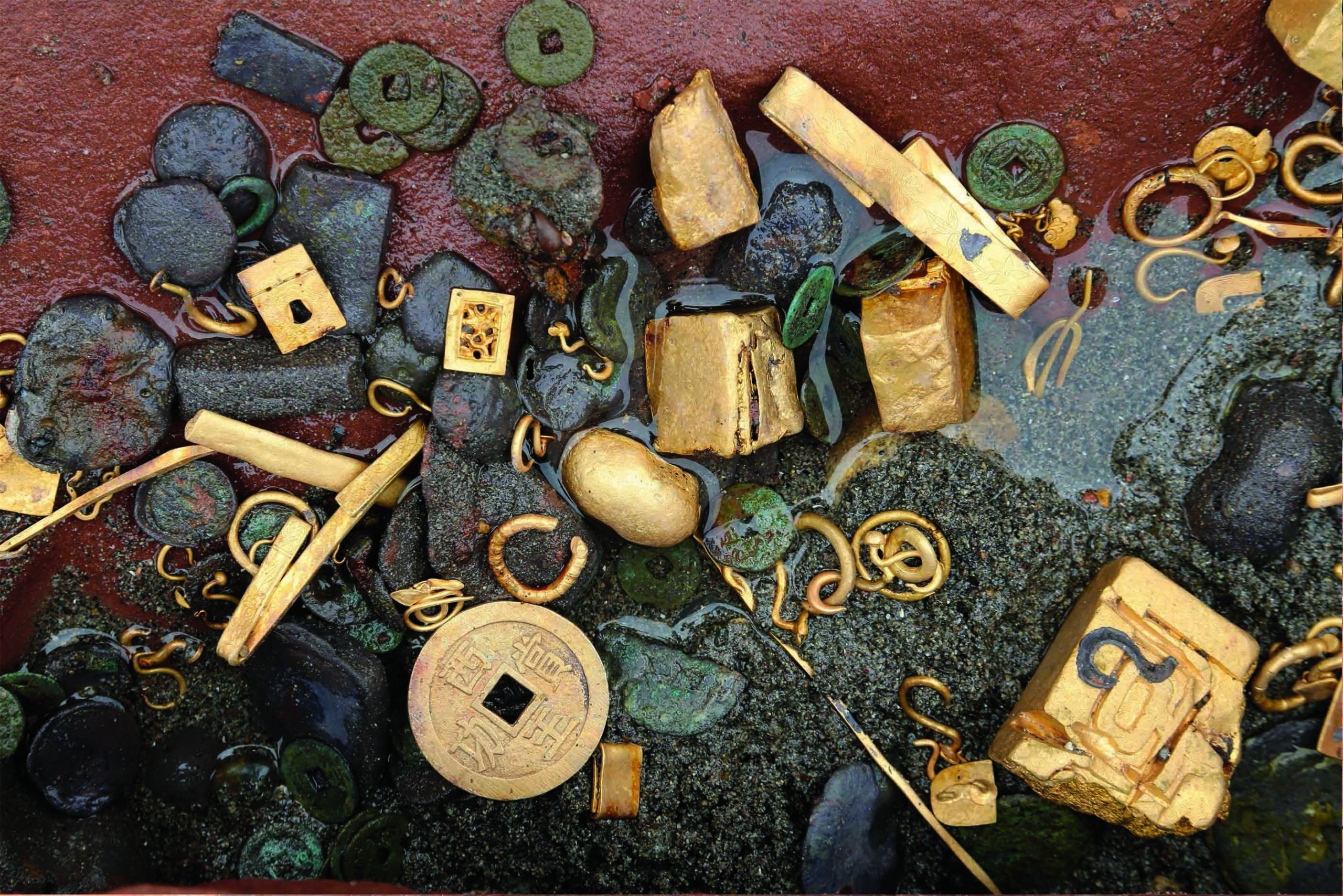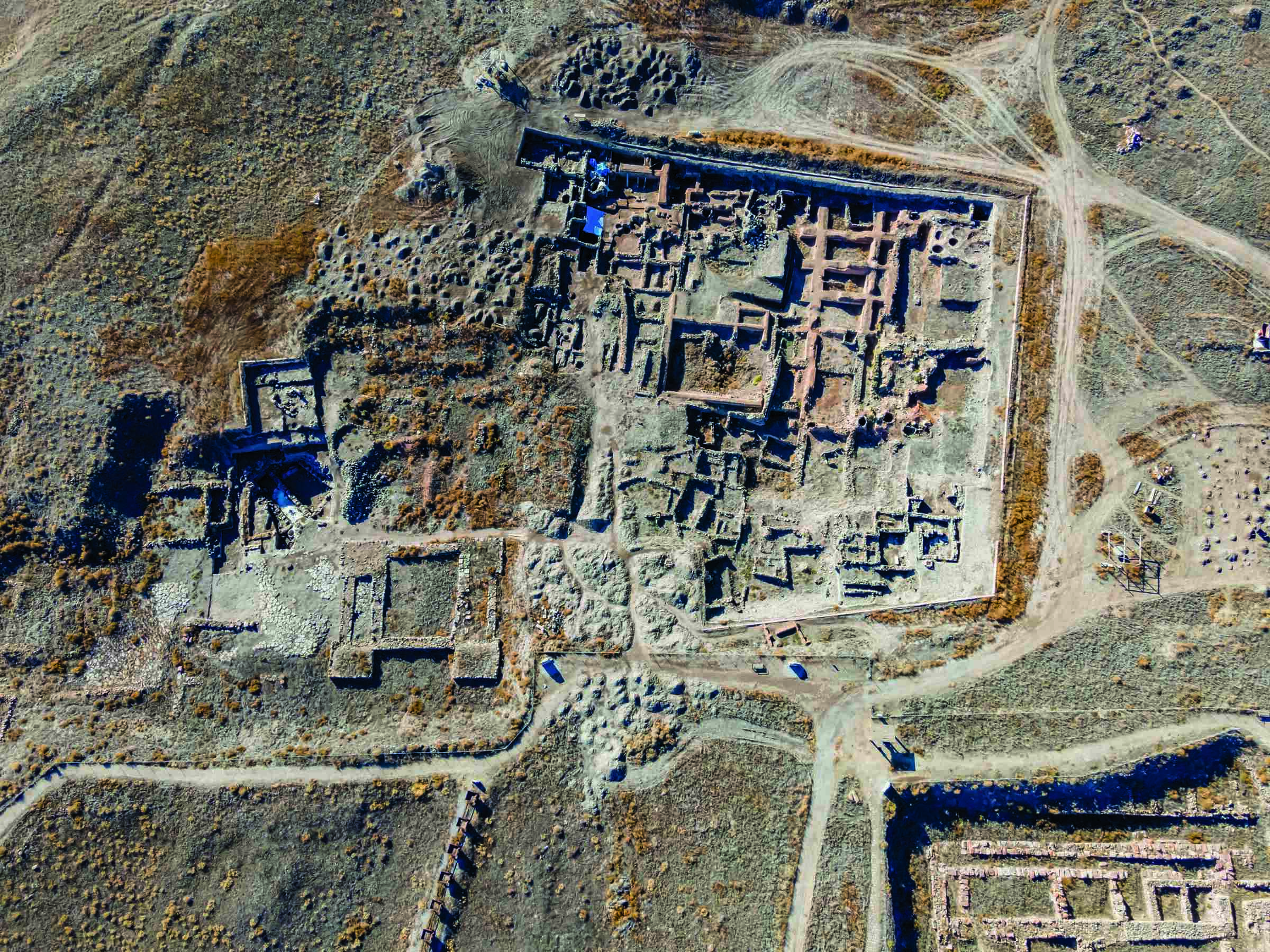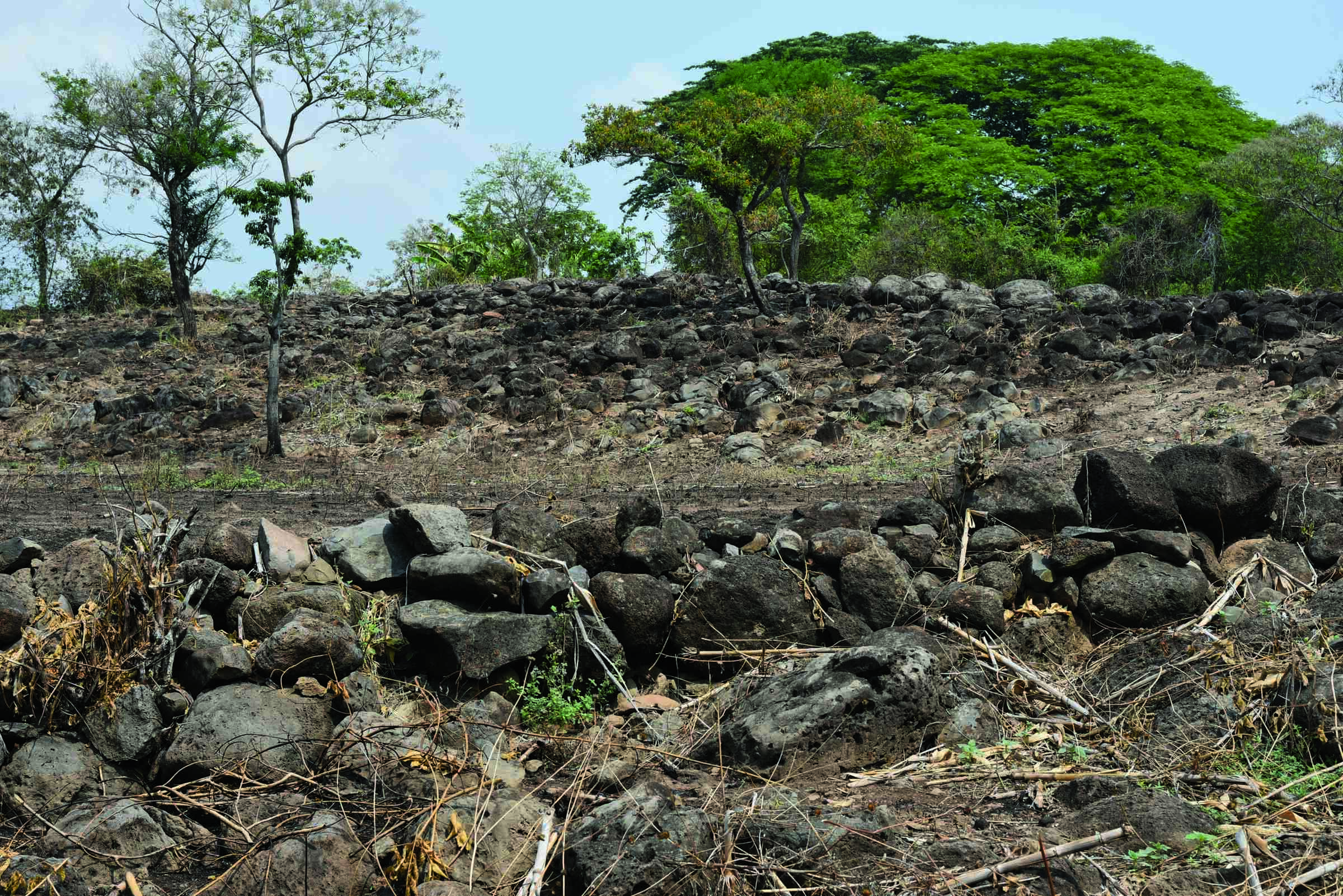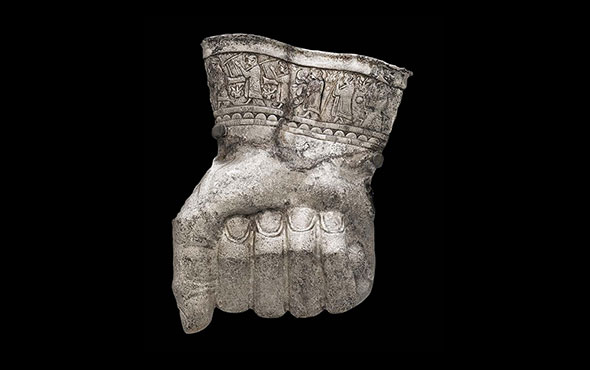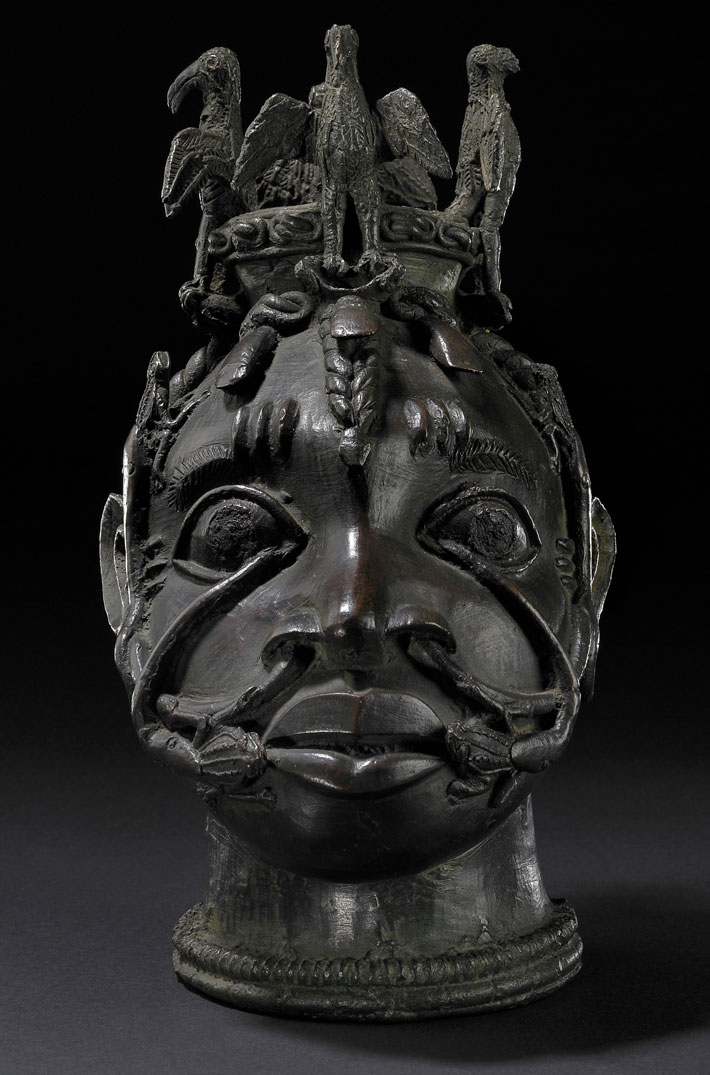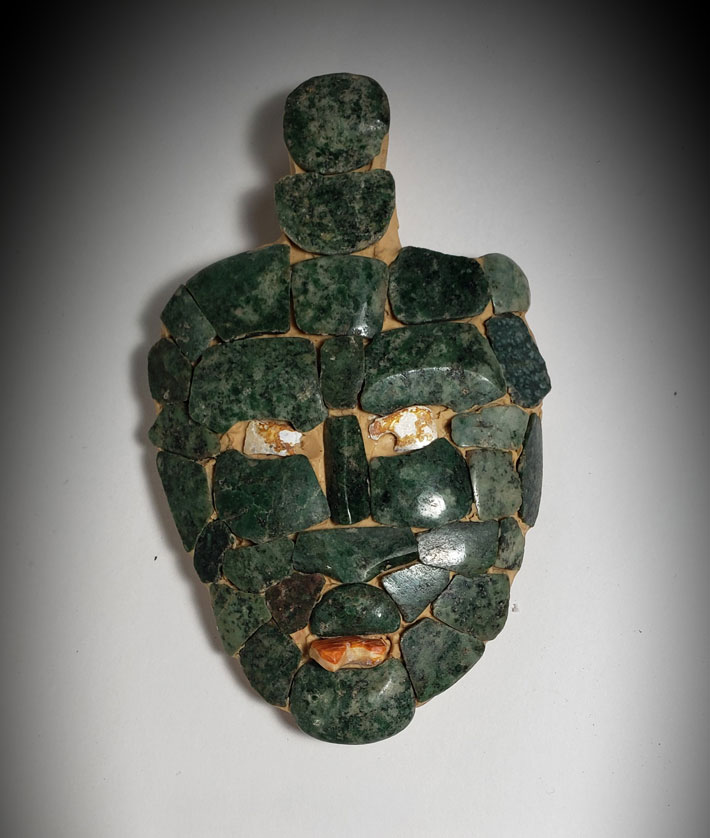
NEW ORLEANS, LOUISIANA—According to a statement released by Tulane University, a mosaic jade mask, 16 spondylus shells, and carved human femurs have been discovered in a 1,700-year-old tomb at Guatemala’s Maya site of Chochkitam by archaeologist Francisco Estrada-Belli. He and his colleagues spotted looters’ tunnels in the ancient city while conducting a survey of the site using lidar, a process employing an airplane or drone carrying lasers that can detect features on the ground hidden by dense jungle foliage. The intact tomb was situated just six feet from where the looters had stopped digging. Estrada-Belli said that the carvings on one of the bones depicts a man thought to be a king holding a jade mask like the one found in the tomb. Hieroglyphs accompanying these images may identify the king’s father and grandfather, and link the ruler to Tikal and Teotihuacan. The spiny oyster shells, he added, were used by royalty as jewelry, currency, and in sacrificial offerings. Future work will include DNA testing of the bones. For more on Maya rulers, go to "Jungle Realm of the Snake Queens."





